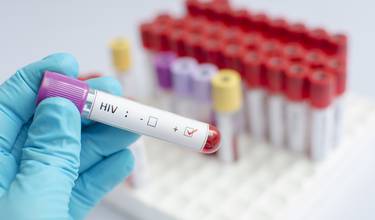Years of research and numerous experiments have led to discoveries and results of varying success. Researchers now have a new hope; a vaccine containing antibodies for HIV. The problem with HIV is that a myriad of different variants and forms of the virus exist, and that it is known to rapidly develop an immunity to medications. This is the reason why some antibodies have previously been unable to combat HIV satisfactorily. It has not been possible for the antibodies to recognise all forms and variants of HIV; thus, could not all patients be cured. Antibodies are proteins, which are part of the immune system. The antibodies react to foreign organisms and substances – also called antigens. Normally, every antigen can be recognised by the immune system and eliminated. The problem with HIV is, unfortunately, that the body’s antibodies are not effective enough to combat the infection, which will then spread and weaken the immune system (AIDS).
Collecting power
The idea is to collect the power and combine antibodies to increase their effectiveness. The hope is that the combination of different antibodies can lead to a more effective method of recognising and eliminating HIV. A cooperation between multiple teams of scientists and pharmaceutical companies, like Sanofi, have hopefully lead to a breakthrough in HIV treatment.
The combination of antibodies is based on a biotechnological method. Prior to the fusion of antibodies, these were extracted from different people, and are therefore capable of recognising different variants and forms of HIV. Together the antibodies can be become a potent treatment option, which will hopefully be capable of curing when neither could alone. As a start, the new super-antibodies have been tested on cell cultures.
Promising results in apes
Following successful experiments on cell cultures, the scientists proceeded to animal trials. Super-antibodies were tested on apes with a type of ape-HIV (SIV). The apes were vaccinated with the super-antibodies and were given the SIV-virus five days later. The results showed that none of the apes were infected with SIV, as oppose to the apes that were not given the vaccine.
The promising results kindle a new hope that the effect is the same in people. The scientists will therefore soon proceed to clinical trials. A phase 1 study is expected to begin near the end of 2018, and the objective is to access the safety and effect of the super-antibodies in prevention of HIV in humans. Furthermore, a clinical study is planned in order to examine whether the vaccine can be used as a treatment for people, already infected with HIV. The scientists explain that combining antibodies has great potential, not just in HIV-treatment and -prevention, but for other infectious diseases as well.








